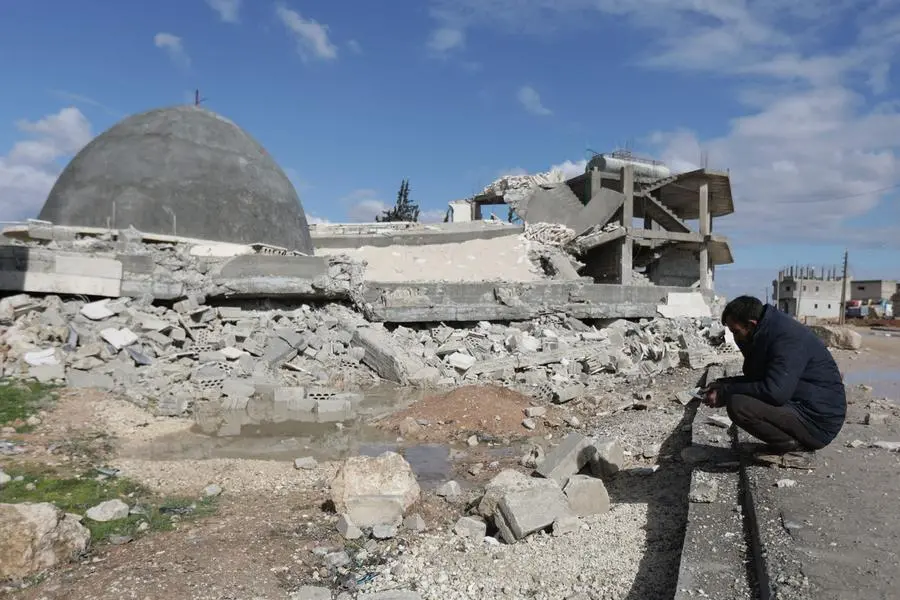PHOTO
A large earthquake hit southeastern Turkey and neighbouring Syria in the early hours of Monday, devastating cities and killing and injuring thousands.
Here's what we know about the disaster so far:
- When and where -
The first 7.8-magnitude quake struck at 04:17 am (0117 GMT) at a depth of about 18 kilometres (11 miles) near the Turkish city of Gaziantep, which is home to around two million people, the US Geological Survey said.
It was followed by a slightly smaller 7.5-magnitude tremor and dozens of aftershocks.
The quakes devastated entire sections of major cities in Turkey and war-ravaged Syria.
The region also hosts millions of people who have fled the civil war in Syria and other conflicts.
- Casualties -
More than 5,000 people have been killed and thousands more injured, authorities and medical sources reported, with efforts ongoing to save those trapped under rubble.
Syrian state media and rescuers said at least 1,602 people have died in the earthquake and more than 3,600 have been injured across the country.
Turkey put the latest death toll at 3,419 with 20,534 injured in that country alone -- bringing the confirmed tally in both Turkey and Syria to 5,021.
Initial rescue efforts were hampered by a winter blizzard that covered major roads in ice and snow and left three major airports in the area inoperable, complicating deliveries of vital aid.
- Destruction -
Some of the heaviest devastation occurred near the quake's epicentre between Kahramanmaras and Gaziantep, where entire city blocks lay in ruins.
Turkey said almost 3,000 buildings had collapsed in seven different provinces, including public hospitals.
A famous mosque dating back to the 13th century partially collapsed in the province of Maltaya, where a 14-story building with 28 apartments that housed 92 people collapsed.
Social media posts showed a 2,200-year-old hilltop castle built by Roman armies in Gaziantep lying in ruins, its walls partially turned to rubble.
In Syria, the health ministry reported damage across the provinces of Aleppo, Latakia, Hama and Tartus, where Russia is leasing a
UNESCO said it was "particularly concerned" about the old city of Aleppo, which has been on its list of World Heritage in Danger since 2013 due to the Syrian civil war.
Even before the tragedy, buildings in Aleppo often toppled due to poor infrastructure and many are dilapidated after more than a decade of war.
As well as the damage to Aleppo and the fortress in the southeastern Turkish city of Diyarbakir, UNESCO said other World Heritage sites could be affected.
- International aid -
Condolences and offers of aid have poured in, including from the European Union, the United Nations, NATO, Washington, Ukraine and Russia.
Despite political tensions, both Greece and Sweden pledged their support for Turkey.
President Joe Biden promised his Turkish counterpart Recep Tayyip Erdogan that the United States will send "any and all" aid needed.
Beijing said the first Chinese rescue teams started work in Turkey on Tuesday and that it was sending $5.9 million in emergency aid to the country.
The WHO said up to 23 million people could be affected by the earthquake and promised long-term assistance.





















